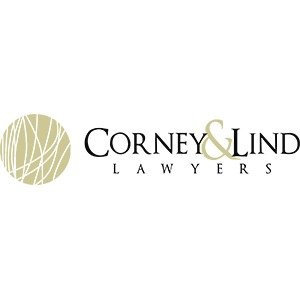Best Merger & Acquisition Lawyers in Brisbane
Share your needs with us, get contacted by law firms.
Free. Takes 2 min.
List of the best lawyers in Brisbane, Australia
About Merger & Acquisition Law in Brisbane, Australia
Merger and Acquisition (M&A) law in Brisbane, Australia, encompasses a wide range of activities that involve the merging or acquisition of companies. This field of law is crucial in reshaping industries and can significantly impact economic environments. Brisbane, as a vibrant hub of business in Queensland, experiences a robust M&A market. Legal practitioners in this field help businesses navigate complex transactions, ensuring compliance with applicable regulations and laws. M&A activities must adhere to guidelines set by the Australian Competition and Consumer Commission (ACCC), the Australian Securities and Investments Commission (ASIC), and the Foreign Investment Review Board (FIRB), among others.
Why You May Need a Lawyer
M&A transactions are complex, involving intricate legal and financial elements. Here are common situations where legal assistance in M&A may be necessary:
- When considering the acquisition of another business, including due diligence on legal standing and financial stability.
- Navigating the sale of a business or company to another entity.
- Understanding and negotiating terms in merger agreements to ensure fair treatment and compliance with the law.
- Assisting with regulatory filings and approvals required by various Australian regulatory bodies.
- Addressing disputes or liabilities that arise from M&A transactions.
- Structuring tax-efficient transactions in alignment with legal requirements.
Local Laws Overview
Key aspects of local laws relevant to M&A in Brisbane include:
- Corporation Act 2001: Governs corporate activities and regulates mergers and acquisitions to protect shareholders and ensure market integrity.
- Competition and Consumer Act 2010: Managed by the ACCC, this act prevents anti-competitive mergers and ensures fair trading.
- Foreign Acquisitions and Takeovers Act 1975: Overseen by the FIRB, this act regulates foreign investments and acquisitions to protect Australia's national interest.
- ASX Listing Rules: For publicly listed companies, the rules set by the Australian Securities Exchange play a crucial role in M&A transactions.
Frequently Asked Questions
What is the typical process for a merger or acquisition?
The typical process includes due diligence, negotiation of terms, approval from relevant authorities, and completion of the transaction. Each step requires meticulous legal scrutiny.
How does due diligence work in an M&A transaction?
Due diligence involves a comprehensive appraisal of the business being acquired or merged, including financial, legal, and operational evaluations to assess risks and opportunities.
What regulatory approvals are needed for an M&A transaction in Brisbane?
Depending on the transaction, approvals may be needed from the ACCC, ASIC, and FIRB, particularly if it involves foreign entities or impacts competition significantly.
Can foreign companies merge with Australian companies?
Yes, foreign companies can merge with Australian companies, but they must comply with the Foreign Acquisitions and Takeovers Act and obtain necessary approvals from the FIRB.
What is the role of the ACCC in mergers and acquisitions?
The ACCC assesses M&A proposals to ensure they do not result in reduced competition or breach competitive practices in the market.
How are employees affected during an M&A transaction?
Employees may face changes in management, culture, roles, and job security. It's crucial to consider employment contracts and workplace laws during an M&A process.
What are common challenges in M&A transactions?
Challenges include cultural integration, valuation disagreements, regulatory hurdles, and potential litigation from stakeholders or competitors.
How can M&A activity impact shareholders?
M&A activities can impact share prices, dividends, and shareholder voting rights. Hence, clear communication and safeguarding shareholder interests are essential.
What is a non-disclosure agreement's role in M&A?
A non-disclosure agreement protects sensitive information during negotiations, ensuring both parties safeguard confidentiality until a formal agreement is reached.
What tax considerations are involved in M&A transactions?
Tax considerations include capital gains tax, GST implications, and stamp duties which can significantly affect transaction structures and values.
Additional Resources
For individuals or businesses seeking more information on M&A in Brisbane, the following resources may be invaluable:
- Australian Competition and Consumer Commission (ACCC): Provides guidelines and insights into competition laws affecting M&A.
- Australian Securities and Investments Commission (ASIC): Offers regulatory information crucial for compliance in corporate transactions.
- Foreign Investment Review Board (FIRB): Details requirements for foreign investments and acquisitions in Australia.
- Queensland Law Society: Offers a directory of qualified M&A lawyers and legal resources.
- Australian Institute of Company Directors: Provides resources on governance practices affected by M&A activities.
Next Steps
If you require legal assistance with M&A in Brisbane, consider taking the following steps:
- Engage a qualified M&A lawyer or law firm with experience in handling complex transactions.
- Prepare a list of objectives and key questions to discuss with your lawyer to ensure clarity and focus during initial consultations.
- Ensure thorough documentation of all aspects of the M&A process for due diligence and compliance purposes.
- Stay informed about current market trends and regulatory changes that might affect your transaction.
- Consider consulting with financial advisors and other professionals to complement the legal advice.
Lawzana helps you find the best lawyers and law firms in Brisbane through a curated and pre-screened list of qualified legal professionals. Our platform offers rankings and detailed profiles of attorneys and law firms, allowing you to compare based on practice areas, including Merger & Acquisition, experience, and client feedback.
Each profile includes a description of the firm's areas of practice, client reviews, team members and partners, year of establishment, spoken languages, office locations, contact information, social media presence, and any published articles or resources. Most firms on our platform speak English and are experienced in both local and international legal matters.
Get a quote from top-rated law firms in Brisbane, Australia — quickly, securely, and without unnecessary hassle.
Disclaimer:
The information provided on this page is for general informational purposes only and does not constitute legal advice. While we strive to ensure the accuracy and relevance of the content, legal information may change over time, and interpretations of the law can vary. You should always consult with a qualified legal professional for advice specific to your situation.
We disclaim all liability for actions taken or not taken based on the content of this page. If you believe any information is incorrect or outdated, please contact us, and we will review and update it where appropriate.












